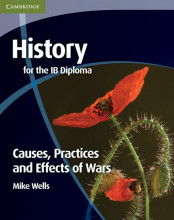The Origins and the Causes of the First World War - What were the main short-term causes? - The Spanish Civil War
10 important questions on The Origins and the Causes of the First World War - What were the main short-term causes? - The Spanish Civil War
Who won the Spanish War and when?
What two quotes introduce the idea that the Second World War was fought along lines of ideology; as was the Spanish Civil War?
The Spanish Civil War was:
- 'European War fought in Spain'; this meant that the war was a war of ideology. - E. H. Carr
- 'A dress rehearsal for the Second World War' - E. H Carr. This means that what happened in the Spanish Civil War was seen in the Second World War; for example, French and British neutrality, whilst the 'Fascist' powers (Franco, Hitler and Mussolini) started the war?
What was the German intervention in the Spanish Civil War?
Undercover intervention:
- Provision of 15,000 troops
- 26 April 1937: The 'volunteer' Condor legion - bombed Guernica
- Junker transport planes which took Spanish "Africanistas" from Morocco to Spain
- Higher grades + faster learning
- Never study anything twice
- 100% sure, 100% understanding
What was the Italian intervention in the Spanish Civil War?
Mussolini committed substantial forces of the Italian regular army:
- 70,000 troops
- 950 tanks
- 700 planes
What was the USSR intervention in the Spanish Civil War?
- Mig Planes
- Tanks
- Military Advisors
- Food
- Communist Internationals (Comintern): set up international brigades 60,000 volunteers
The USSR didn't want the Republicans to either win nor lose but to wear-down the Fascist powers.
What was the impact of the Spanish Civil War on the British Policy of rearmament?
- Labour party abandoned hostility towards rearmament; taking attitude Fascism might have to be force
- War helped prepare the way for the coalition government to be formed in 1940 by producing some common ground between Churchill and Labour
What was the impact of the Non-Intervention Committee for Non-Intervention of September 9 1926 on Hitler's understanding of French and British foreign policy?
- Failure of the Democracies to make a reality of the Non-Intervention further dented their prestige and increased Hitler's confidence that they would not act when he invaded Poland.
- Also the way in which that France and Britain didn't act cohesively; the French later becoming involved to a limited degree, supplying war materials to the Republics, didn't provide the implication of an unified front that might have been worrying for Hitler
What was the impact of the Spanish Civil War on France's political situation? How did this make war more likely?
- France was found surrounded by right-wing governments
- France was further internally weakened due to the Right-Left conflict over the war
- More dependent on Britain, and thus less able to oppose Chamberlain's policy of Appeasement.
- Felt far less able to pursue her policy of the 1920s offering protection to nations beyond her frontiers, e.g. Czechoslovakia
What was the impact of the non-intervention agreement and the USSR involvement in the Spanish Civil War on the breaking up of the First World War alliances?
- USSR: Britain and France had done nothing to help the Spanish Popular Front Government; Stalin consequently believed that neither would nor could offer Russia any security against Fascist attack. Instead started to pursue a policy of finding security by making a direct settlement with Germany and abandoning his hopes for alliance with the West; This is seen in the Nazi-Soviet Pact of 1939 (argument that Long-term Causes cause short-term causes)
- Moreover, Stalin's donation of troops and weapons made the British and French suspicious
What a general implication for diplomacy caused by the Spanish Civil War?
It becamehard to envisage a peaceful victory by either the forces of the Left or Right; people started talking about the inevitability of war.
The question on the page originate from the summary of the following study material:
- A unique study and practice tool
- Never study anything twice again
- Get the grades you hope for
- 100% sure, 100% understanding
































